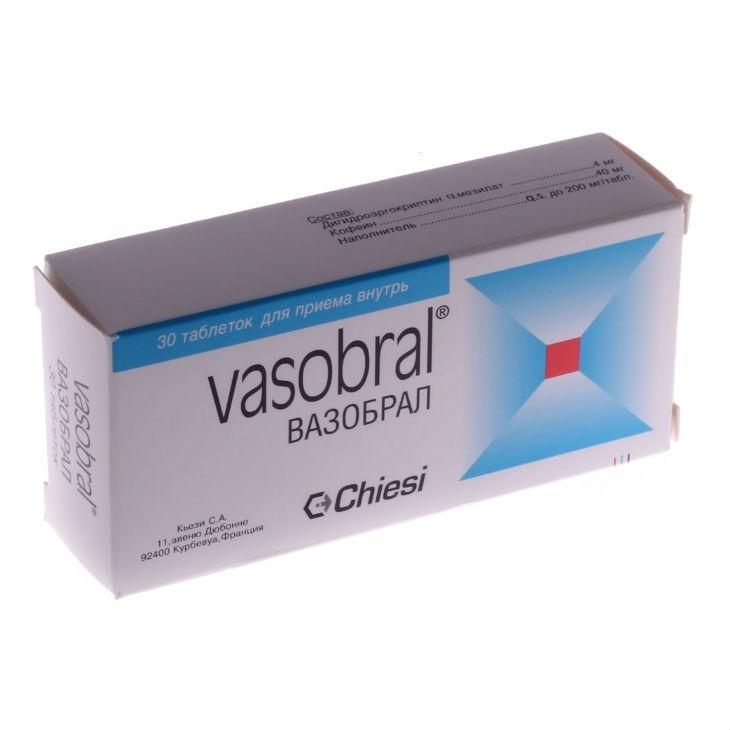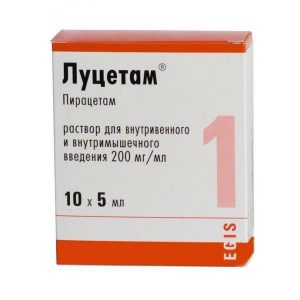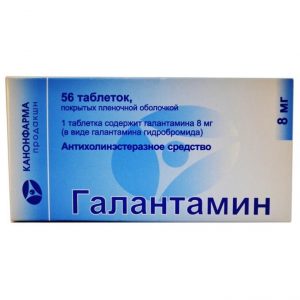Description
Release form
Tablets
Pharmacological action
Combined drug.
a-dihydroergocriptine is a dihydrogenated ergot alkaloid derivative that blocks a1- and a2-adrenergic receptors. It has dopaminergic, serotoninargic effect, reduces platelet and erythrocyte aggregation, reduces the permeability of the vascular wall, increases the number of functioning capillaries, improves blood circulation and metabolic processes in the brain, and increases the resistance of brain tissue to hypoxia.
Caffeine has a psychostimulating and analeptic effect, enhances the processes of excitation in the cerebral cortex – increases mental and physical performance, reduces fatigue and drowsiness, increases the reflex excitability of the spinal cord, stimulates the respiratory and vasomotor centers, and has a diuretic effect.
Pharmacokinetics of
When administered orally, the absorption of dihydroergocriptine is accelerated in the presence of caffeine (the time to reach maximum concentration (Tmax) is 0.5 hours). After oral administration of 8 mg of a-dihydroergocriptine, the maximum concentration (Cmax) is 227 pg / ml, and the half-life (t1 / 2) is less than 2 hours.
Indications
• Cerebrovascular insufficiency (including due to cerebral atherosclerosis).
• Consequences of cerebrovascular accident.
• Vestibular and labyrinth disorders (dizziness, tinnitus, hypoacusia) of ischemic origin.
• Meniere’s disease.
Contraindications
Increased individual sensitivity to the components of the drug.
Contraindication for long-term use: signs of heart valve defects detected by echocardiography performed prior to the use of the drug.
Pregnancy and lactation
There are no clinical data on the use of Vazobral during pregnancy and lactation.
The use of the drug during breastfeeding can lead to a decrease in lactation.
Special instructions
Vasobral has a vasodilating effect, without affecting systemic blood pressure.
Prescribing Vazobral to patients with arterial hypertension does not exclude the need for antihypertensive drugs. The caffeine contained in the preparation can cause sleep disturbance, tachycardia. You should avoid taking the drug on an empty stomach.
In patients taking dihydroergocriptine, especially in high doses and for a long time, the development of effusion into the pericardial cavity and pleural cavity, as well as the development of pleural and pulmonary fibrosis and constrictive pericarditis, were sometimes reported.
Patients with unexplained pleuropulmonary disorders should be examined and discontinuation of treatment with dihydroergocriptine should be considered. Rare cases of retroperitoneal fibrosis have been reported, especially with high doses and with long-term treatment with dihydroergocriptine.
In order to diagnose retroperitoneal fibrosis at a reversible stage, such patients should be regularly monitored for clinical signs of development of retroperitoneal fibrosis (back pain, swelling of the lower extremities, renal failure).
When diagnosing or suspecting fibrotic changes in the retroperitoneal space, treatment with dihydroergocriptine should be discontinued.
Athletes should be warned that this drug contains a substance that can cause a positive reaction in tests conducted during the doping control.
Impact on the ability to drive vehicles and engage in other potentially dangerous activities.
The drug in rare cases can cause a decrease in blood pressure, dizziness. When such side effects occur, driving or engaging in other potentially hazardous activities is contraindicated.
Composition
1 tablet contains:
active ingredients:
dihydroergocriptine a mesylate – 4.0 mg
caffeine – 40.00 mg
excipients:
lactose monohydrate – 94.1 mg,
microcrystalline cellulose 60 (10) , 0 mg,
magnesium stearate – 1.5 mg,
anhydrous silicon colloidal dioxide (Aerosil 200) – 0.4 mg.
Dosage and administration
Inside (with food, with a small amount of liquid) 1 / 2-1 tablet 2 times a day.
The duration of the course of treatment is 2-3 months, if necessary, courses of treatment can be carried out 1-2 times a year.
Side effects
The frequency of occurrence of adverse events / adverse reactions (AE / NR) when taking the drug is presented in accordance with the following gradation (World Health Organization classification): very often? 10% often? 1% and <10% infrequently? 0, 1% and <1% rarely? 0.01% and <0.1% very rarely <0.01%. Disorders of the gastrointestinal tract Possible nausea (especially when taking the drug on an empty stomach), gastralgia, dyspepsia, with these manifestations, drug withdrawal is not required. Disturbances from the heart Very rare: tachycardia, decreased blood pressure, heart defects (including malformations with blood regurgitation) and their associated conditions (pericarditis, effusion into the pericardial cavity). Disorders of the nervous system Rarely: dizziness, agitation, headache. Immune system disorders Very rare: allergic reactions. Drug Interactions With the simultaneous administration of the drug Vazobral and antihypertensive drugs, an additional decrease in blood pressure is possible. Caffeine weakens sleeping pills. Overdose An overdose can cause vomiting. Overdose symptoms – increased severity of side effects. Symptomatic treatment. Storage conditions At a temperature of 15 – 25 C, out of the reach of children. Expiration 4 years. Do not use after the expiry date. lekarstvennaja form tablets Appointment Adult Indications Indications Diabetic retinopathy, Raynaud’s disease, Migraine, Meniere’s disease, Concussion and other craniocerebral injuries, Acquired dementia, Varicose veins, Stroke effects Chiesi Pharmaceuticals S.P.A., Italy




